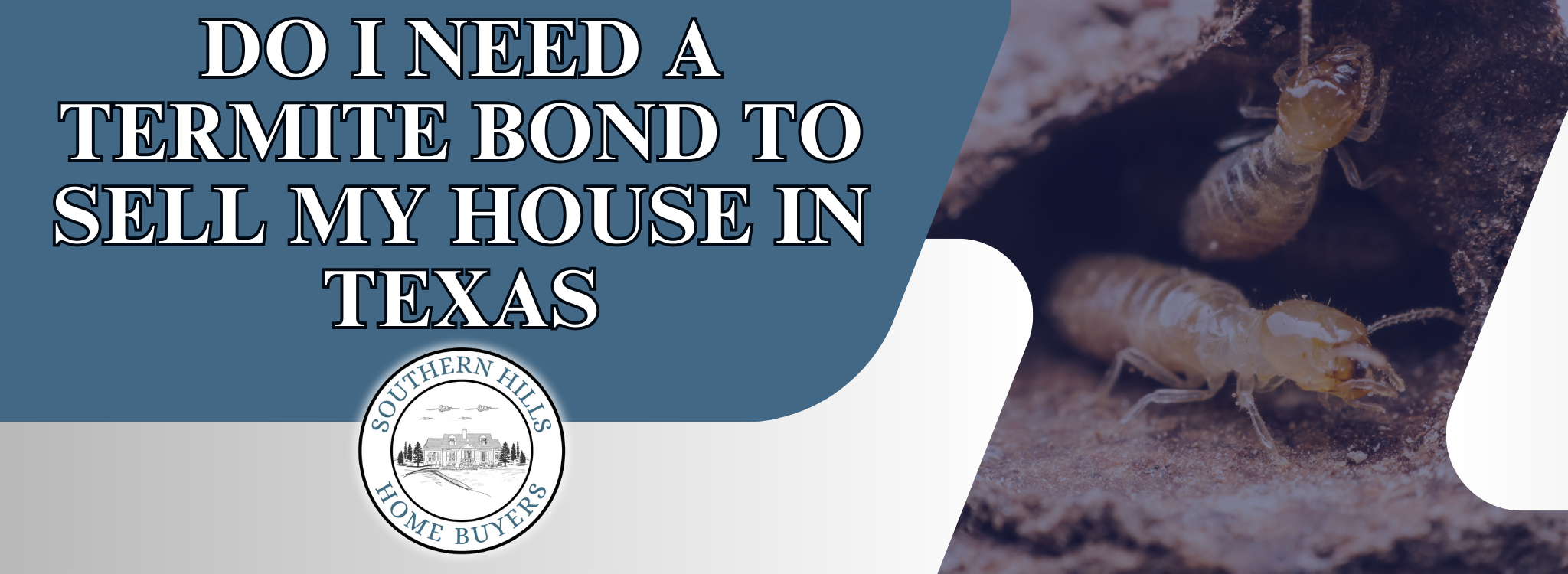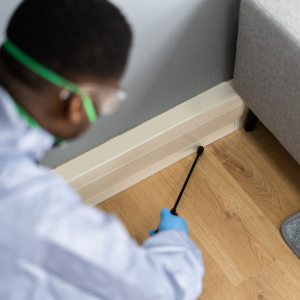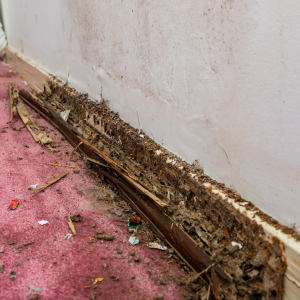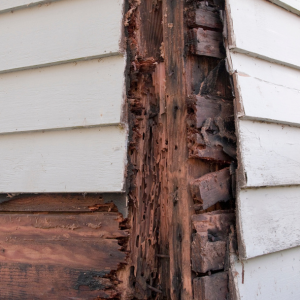
Selling Your Home with Termite Concerns in Texas
What is the Role of a Termite Inspection?

Termite inspections are essential when selling a house in Texas. These checks, known as “wood-destroying insect inspections,” look for termite activity. Inspectors sometimes accompany these inspections with a pest control agreement outlining any required treatments. Meeting Texas inspection criteria promotes a seamless home sale.
How Does a Termite Inspection Affect Your House Sale?
In Texas, selling real estate usually requires a termite inspection as part of the house-selling checklist. The home inspection report will highlight any termite problems that can affect the sale. Many property sales include a termite clause that may require the seller to fix issues before selling.
Should You Trust the Pest Control Reports?
In Texas, pest control services provide detailed reports after inspections. Sellers need to ensure that these reports are accurate. Buyers have inspection rights and might conduct their own pest inspections. Including all information on the seller disclosure form builds trust during the sale.
Can Termite Inspections Be a Long-Term Solution?
Choosing a termite control service in Texas can provide long-term solutions. Some services offer a termite warranty transfer, protecting the property even after it changes ownership. A termite protection plan and regular prevention can help keep your home free from termites over time.
Understanding Termites and Their Impact
Why Are Termites a Threat to Your Property?

Termites pose a significant threat in Texas because they can cause severe pest infestations. These pests create costly termite problems that lower home valuations. Repairing pest damage can be expensive, so early detection and treatment are essential to protect your home’s value.
How Do Termites Affect the Value of Your Home?
A termite infestation can severely impair the value of your Texas house. Disclosing such issues during the property inspection is critical. Potential buyers must know termite issues, as they affect the house’s value and appeal.
Is Termite Damage Always Visible?
In Texas, termite damage isn’t always apparent until it becomes severe. During a home inspection, experts look for signs of damage, which is essential for understanding the property’s condition. While termite coverage plans might cover some damage, thorough inspections ensure accurate assessments.
Is It Legal to Sell a House with Termite Damage?
Yes, you can legally sell a home with termite damage in Texas, but some requirements exist. Understanding real estate regulations is critical since sellers must observe Texas house sale laws. Sellers must disclose known concerns to potential buyers to guarantee a fair transaction.
Should You Repair or Disclose Termite Problems?
When deciding whether to repair or disclose termite problems, consider if a termite bond is necessary. The seller disclosure form in Texas requires honesty about pest damage. Comparing the cost of repairs against home sale requirements can help make this decision.
What Are Buyers’ Rights Regarding Termite Issues?
Texas buyers have specific rights concerning termite problems. They can conduct their inspections and request a termite certificate as part of the house sale agreement. Knowing these rights helps ensure buyer protection and supports informed decisions during the purchase.
Navigating Termite Bonds in Real Estate Transactions
Defining the Termite Bond: What You Need to Know

A termite bond is a pest control agreement that protects properties from termite damage. In Texas, these bonds are essential for buyers and sellers in the real estate market. A bond, known as a termite warranty transfer, ensures ongoing termite protection even after the property changes hands. In Texas, having a termite bond provides peace of mind by offering continuous termite coverage.
What Exactly is Covered by a Termite Bond?
Termite bonds offer several benefits, depending on the coverage you choose. A Texas termite coverage typically includes inspections, treatments, and, occasionally, restorations to address termite damage. A successful termite protection plan can avert severe structural damage, saving homeowners money. A thorough grasp of the unique benefits of your termite bond ensures that you receive the best possible value.
Are There Different Types of Termite Bonds?
Yes, there are different types of termite bonds, each with unique cost implications. In Texas, the cost of a termite bond varies based on coverage type and duration. Some bonds may cover only specific treatments, while others include a full range of services, like inspections and repairs. Understanding the types of termite bonds available helps you pick the best one for your needs.
Should You Consider a Renewable Termite Bond?
When buying a termite bond, consider if it is renewable. A renewable termite bond offers long-term protection, ensuring continuous coverage without needing new agreements. The necessity of a renewable bond depends on factors like location, property age, and personal choices.
What Are the Advantages of Having a Termite Bond?
A termite bond offers many advantages, such as protecting your investment from costly pest damage repair in Texas. It acts as a form of home warranty against termites, providing reassurance about your property’s structural safety. These termite bond benefits are especially valuable in areas with a high risk of termites.
Should You Worry About the Costs of a Termite Bond?
The cost of a termite bond in Texas can vary, but it’s worth comparing to the potential financial impact of termite damage. Though some might see it as an extra expense, considering it as termite insurance helps manage concerns over possible repair costs. These cost considerations can aid your decision on getting a termite bond.
How Does a Termite Bond Protect Buyers and Sellers?
Termite bonds are essential for buyers and sellers in real estate deals. They spell out the rights and responsibilities of both buyers and sellers in Texas, making it easier for people to buy and sell homes. Putting a termite clause in sale deals prevents problems before they happen, making the process more straightforward and safer.
Comparing Termite Bonds and Homeowners Insurance
Can Homeowners Insurance Replace a Termite Bond?

Many wonder if homeowners insurance can replace a termite bond. While homeowners insurance covers various damages, it usually excludes termite issues. Therefore, specific termite insurance in Texas is necessary for complete protection. Replacement considerations should involve reviewing what each type of coverage offers.
How Do Termite Bonds and Insurance Policies Work Together?
A termite bond in Texas thoroughly checks for pests when paired with an existing insurance policy. This teamwork ensures that all parts of possible pest damage are handled, from finding the problem to fixing it. Property owners are better protected knowing how these two plans work together.
Are There Cases When Insurance Covers Termite Damages?
Insurance sometimes covers termite damage, but this isn’t always the case and depends on the policy terms. In Texas, reviewing your home inspection report can help determine what damage your insurance might cover. Knowing these situations helps homeowners set reasonable goals for their insurance and termite damage cases.
Selling Your Home Fast Despite Termite Challenges
Selling a house in Texas can be challenging, especially if your home has termite problems. But with the proper steps, you can sell your home quickly and smoothly.

Strategies for Selling a House with Termite History
If your Texas home has a history of termites, address buyer concerns early. Here are some helpful strategies:
- Conduct a Termite Inspection: Hire a professional in Texas to check for any issues and reassure buyers.
- Obtain a Pest Control Agreement: This shows buyers you’re serious about keeping the property well-maintained.
- Clarify the House Sale Agreement: Ensure the agreement clearly outlines who handles termite-related issues.
How to Market Your Home With Termite History?
Marketing a home with a termite past requires honesty and planning:
- Highlight Any Recent Treatment: If you’ve dealt with pests recently, mention it in your listing. Providing a termite warranty transfer reassures buyers that the seller has handled the issue.
- Disclose Termite History During Real Estate Transactions: Being transparent about past termite issues builds trust and avoids surprises later.
Can Termite Treatment Increase Your Home’s Value?
Investing in termite treatment before selling may boost your home’s value:
- Understand Termite Treatment Benefits: Effective treatments prevent future damage and keep your home strong.
- Explore Termite Bond Benefits: A termite bond offers long-term protection, which can appeal to buyers assessing home value.
What Steps Can Make Your House More Appealing to Buyers?
To attract buyers, consider these easy steps:
- Offer a Home Warranty Covering Termites: This calms buyer fears about future costs.
- Create a House Selling Checklist: Make sure all repairs, even minor pest-related ones, are done.
- Respect Buyer Inspection Rights: Allow thorough inspections and provide all necessary documents.
Quick Cash Offers: A Viable Option?
Quick cash offers can have benefits:
- Evaluate Cash Offer Benefits: They skip lengthy closing processes, which might be ideal for a fast sale.
- Understand Closing Costs in Texas: Be aware of the costs and how they differ from traditional sales.
Who Buys Homes As-Is with Termite Issues?
Some buyers specialize in as-is purchases:
- Look for Companies Specializing in As-Is Purchases: These buyers know the Texas pest inspection requirements.
- Consider Properties with Termite Clauses: A termite clause in the sale can protect both parties.
How Do Cash Offers Compare to Traditional Sales?
Compare cash offers and traditional sales by considering these points:
- Assess Real Estate Transaction Types: In Texas, cash offers reduce paperwork and speed up transactions.
- Review House Closing Requirements: Understand both methods’ different requirements and obligations.
Should You Negotiate Terms for a Faster Home Sale?
Negotiating terms can help speed up the sale:
- Examine the House Sale Agreement: Ensure it supports a fast timeline and addresses selling needs specific to Texas.
- Focus on the Home Selling Process: Simplify steps to avoid unnecessary delays.
Closing the Sale with Termite Considerations
Handle closing with care toward termite issues:
- Prepare a Comprehensive Home Inspection Report: This addresses buyer concerns and eases the closing process.
- Understand Termite Bond Necessity: Knowing when a termite bond is needed can help negotiations.
How Should You Prepare for Closing with Termite Concerns?
Preparing well can avoid last-minute issues:
- Address Pest Damage Repairs: Take care of all necessary repairs before closing.
- Ensure a Termite Policy is in Place: Confirm that the details of the termite policy meet Texas house closing requirements.
Are Termite Repairs Negotiable in Contract Agreements?
It’s possible to negotiate repairs:
- Use a Seller Disclosure Form: Report any known termite damage using this form in Texas.
- Explore Real Estate Pest Control Options: Discuss who will handle pest control agreements with buyers.
Can You Avoid Delays Due to Termite Clauses?
Avoid delays with these proactive steps:
- Secure a Termite Letter: This proves inspection and aids in disclosing any termite infestation.
- Streamline Selling Real Estate Procedures: Tackle all termite-related issues early for smoother transactions.
By following these guidelines, you can effectively manage the challenges of selling a home with termite issues in Texas. For more help, contact Southern Hills Home Buyers or consult experts specializing in these sales.
Understanding Texas Laws on Termite Disclosure
What Are Sellers’ Legal Obligations for Termites in Texas?

In Texas, sellers must disclose any termite infestations they are aware of. Texas real estate rules require sellers to inform buyers about these issues. Sharing accurate information helps maintain trust and transparency in property deals. By sharing precise termite information, sellers can avoid future disputes and meet their legal duties.
Is Full Disclosure Mandatory for Termite History?
Yes, sellers must fully disclose a property’s termite history in Texas. They must fill out the seller disclosure form, including past termite problems. This form is crucial during home inspections and complies with Texas real estate rules. Buyers get all the facts by providing details of previous termite treatments or damages before deciding to buy.
How Does Texas Law Protect Buyers Against Termite Fraud?
Texas law protects buyers from termite fraud in several ways. Buyers have the right to thorough inspections and should use this right during property transactions. Texas law provides buyers with legal options to protect their investments if they discover fraud. Experts advise buyers in Texas to complete inspections and consult professionals to handle termite concerns.
Does Every Home Sale in Texas Require a Termite Bond?
Not all home sales in Texas need a termite bond. Whether you need one depends on the selling agreement and specific sale requirements. A termite bond provides peace of mind by covering future termite treatment costs, but you should determine if it’s necessary for your particular property deal in Texas.
How are Termite Bond Requirements Determined?
Several factors affect Texas’s need for a termite bond, such as the home’s selling process, specific policies, and costs. Sellers consider the property’s history, location, and condition to decide if a termite bond is required. Knowing these requirements helps everyone involved make informed choices about including a termite bond in the transaction.
Are There Exceptions to Having a Termite Bond in Texas?
Indeed, there are exceptions to the requirement for a termite surety in Texas property transactions. Some properties may be exempt from termite activity due to their condition or absence of previous activity. Understanding Texas home sale laws and seeking legal counsel can determine whether a termite bond is required or if there are any exceptions.
Selecting the Right Pest Control Service
What to Look for in a Reliable Pest Control Operator?

When choosing a pest control service in Texas, find certified termite control experts. A trustworthy service should include thorough pest inspections geared toward real estate needs. It’s helpful if they have success handling termite issues effectively.
Should You Insist on Certified Termite Control Experts?
The best way to eliminate termites in Texas is to hire qualified professionals. These experts offer thorough plans for getting rid of pests and know how to do termite treatments safely. Their information is essential if you want to keep your home free of termites in the future.
How Frequent Should Termite Inspections Be Scheduled?
Regular termite inspections are key to avoiding pest issues. It’s best to plan inspections at least once a year in Texas. Depending on your home’s inspection report and prevention needs, you might need more frequent checks to catch and fix any early signs of termites.
Conclusion
Understanding Texas laws on termite disclosure, considering the need for termite bonds, and choosing an exemplary pest control service is critical to protecting your property investment. Stay informed about your rights and responsibilities as a buyer or seller to ensure smooth and transparent property transactions.
Enhancing Your Home Sale Process with Proper Termite Management
When you’re getting ready to sell your home, dealing with termite issues is critical. Not only does it help keep the property’s value intact, but it also makes the sales process smoother. Let’s see how handling termites can make selling your home in Texas easier.

How Soon Should You Address Termites Before Listing?
You should fix termite problems long before you sell your house.
Starting early gives you enough time to treat termites if needed. Early addressing bug problems is especially important in Texas, where such issues are common. Plan your pest check around other things you need to do to get your house ready to sell so that nothing gets in the way. Early steps to keep termites away can help your home’s value stay high and make it more appealing.
Can Immediate Action Influence Your Selling Timeline?
Getting rid of termites quickly can change the time it takes to sell your home. Quick treatment helps keep your house in good shape and speeds up the Texas home selling process. Taking care of termite damage immediately stops more building problems and ensures that fixing the damage doesn’t hold up your sales. Things will go more quickly if you hire a good pest control service.
Should You Wait for Peak Selling Seasons Post-Treatment?
Selling your home during peak real estate seasons can improve its value in Texas. After finishing any necessary termite treatments, consider listing during the best times to capture market interest. Knowing the selling requirements in Texas and aligning them with real estate transactions can put your home in a better market position.
Making Your Home More Attractive to Potential Buyers
How to Showcase a Pest-Free Property?

A pest-free home attracts more buyers. Do a thorough property inspection to ensure no signs of pest infestation. Secure a pest control agreement to guarantee ongoing protection, which adds value during real estate pest control evaluations. Highlighting these efforts can make your home stand out in the Texas market.
What Improvements Complement Termite Control Efforts?
Pair termite control with smart home improvements. In Texas, combine termite prevention methods with enhancements like fresh paint or new flooring to improve house appraisal results. Comprehensive termite coverage can reassure buyers about your home’s durability and safety, fitting into broader home improvement goals.
Should Landscaping Play a Part in Your Strategy?
Landscaping can significantly boost your home’s curb appeal and overall home valuation in Texas. Well-maintained gardens and outdoor spaces create a welcoming look. As part of your property seller duties, opt for attractive and termite-resistant landscaping to protect your investment and attract buyers.
What Are the Next Steps After Securing a Buyer?
After securing a buyer, streamline the home selling process by understanding buyer inspection rights and finalizing the house sale agreement in Texas. Preparing for closing costs will help make the transition smooth. At this stage, efficiency and clarity keep the sale on track.
How to Ensure a Smooth Transition for New Homeowners?
To help the new homeowners, consider offering a home warranty covering possible termite issues. Taking care of termite issues reduces concerns during real estate transactions in Texas. Providing a clear seller disclosure form and enabling termite warranty transfer shows transparency and builds trust with buyers.
Should You Offer Additional Guarantees to Buyers?
Additional guarantees, like a termite bond or policy, can give buyers peace of mind. Emphasize the benefits of a termite bond and discuss transferring existing warranties. Understanding and accommodating buyer inspection rights increases buyer confidence in their purchase, positioning your property as a secure investment.
For further assistance and guidance, reach out to Southern Hills Home Buyers.
FAQs:
What is a termite bond, and do I need it to sell my house in Texas?
A termite bond is a type of warranty with a pest control company. You don’t legally need it to sell your home in Texas, but it can help assure buyers that you have protected your house against termites.
Are there specific states where a termite bond might be necessary for selling a home?
Some states, like Georgia and Florida, have stricter rules due to the presence of more termites. Check local laws in North Carolina, Virginia, or California when selling a home.
How does a termite warranty transfer work in Texas?
To transfer a termite warranty, you inform the pest control company of the ownership change. Transferring the termite warranty lets the new homeowner keep the protection, which can help sell the home.
Is a termite inspection mandatory when selling a house in Texas?
A termite inspection isn’t required by law in Texas, but it’s often a good idea. A clean report can make buyers feel more confident and help sell your house faster.
Can home sellers in Texas improve their chances by having a termite certificate?
Yes, having a termite certificate shows an inspection was done, and no active infestation was found. This can reassure buyers and avoid delays.
What other states might have selling requirements similar to Texas’s regarding termite issues?
States like Maryland, Delaware, and Mississippi might face similar issues. It’s important to learn the rules when selling homes in places like Colorado, Alaska, or Ohio.
Should Texas homeowners consider a termite protection plan even if they aren’t selling?
Yes, a termite protection plan is suitable for ongoing maintenance. It helps prevent damage and can attract future buyers, increasing your home’s value over time.
Do selling requirements vary between northern and southern states?
Yes, they do. Northern states like Michigan or Vermont might worry less about termites, while southern states, including Alabama and Tennessee, may focus on them more due to their climate.
Key Insights
- Knowing termite regulations is important when selling a property in Texas, North Carolina, and Colorado. You might need a termite bond or letter for smooth transactions.
- Property inspections in Hawaii, Pennsylvania, and Montana help with home valuation and appraisals, which can affect the buyer’s decision.
- States like Maine, Minnesota, and Wyoming focus on termite prevention and home maintenance, which adds value to your house.
- Rhode Island, Oregon, and North Dakota require sellers to know about property inspection standards to ensure openness with potential buyers.
- Selling a home in South Dakota, Nebraska, or Idaho means understanding state guidelines about termite protection and property conditions is key.
- Illinois, Oklahoma, and Arkansas have unique real estate markets. Learning about these can offer advantages in home sales.
- Missouri and Washington’s homes benefit from thorough evaluations, meeting buyer expectations and boosting marketability.
- In Utah, sellers should know local home buyer tips to address common buyer concerns and sell a home faster.
This information applies to Texas, including cities like Dallas, Houston, Austin, Fort Worth, El Paso, and nearby areas. Need assistance? Please explore our website for helpful resources, and contact us today at (214) 225-3042. We’re ready to help!


